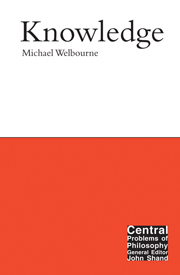Introduction
Summary
This book is about KNOWLEDGE. More specifically, it is about the very idea of knowledge and its importance in the lives of human beings. That makes it, in the proper sense, an essay in epistemology (Greek for theory of knowledge). But epistemology has come to be practised and even understood, more often than not, in a rather narrow and quite special way. A typical modern definition goes like this: “the part of philosophy which discusses the desirable qualities of beliefs, such as justification, rationality and coherence and the ways in which we can acquire beliefs with these qualities, such as by reasoning and gathering evidence” (Morton 1997: 225). This book is not primarily concerned with issues like these, although it will inevitably touch on some of them; one of its central ideas is that, although such issues are undoubtedly important, they are not central to our understanding of the nature of knowledge. It can hardly escape notice that the definition is all about beliefs.
Perhaps the idea is this: a belief, provided it has the right constellation of desirable qualities, is knowledge. The constellation must presumably include truth, since the most obvious fact about knowledge in most people's eyes is that you can only know that P if P is true. But truth alone is not enough. I might believe that the university library is open this evening (Saturday) and I might be right; that is how it has always been during university terms.
- Type
- Chapter
- Information
- Knowledge , pp. vii - xivPublisher: Acumen PublishingPrint publication year: 2001

